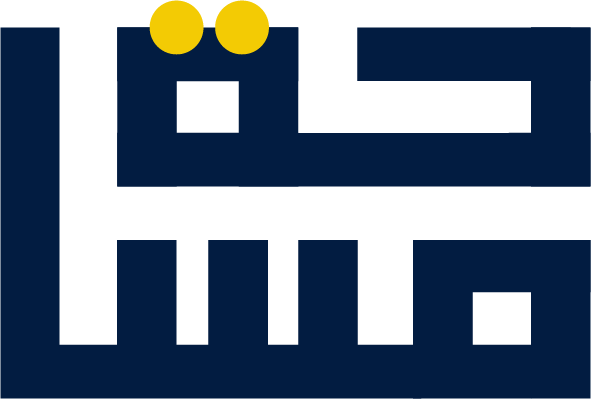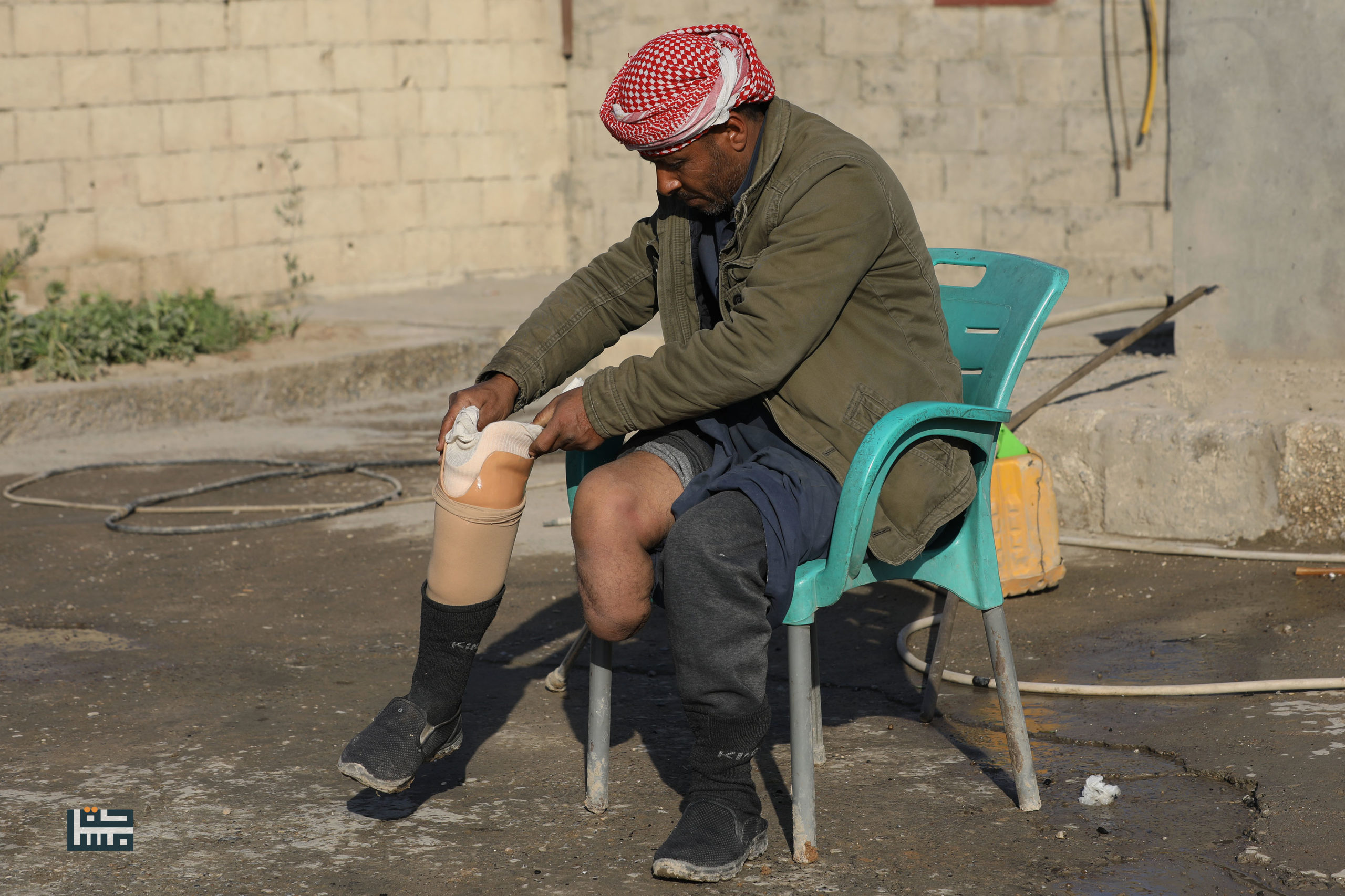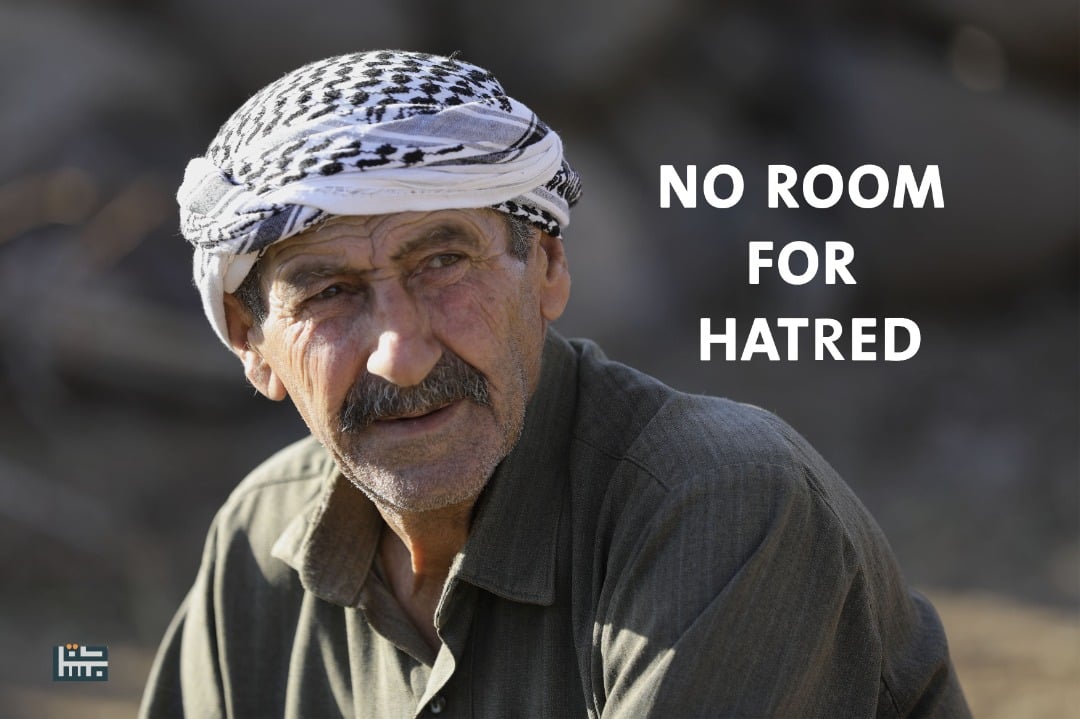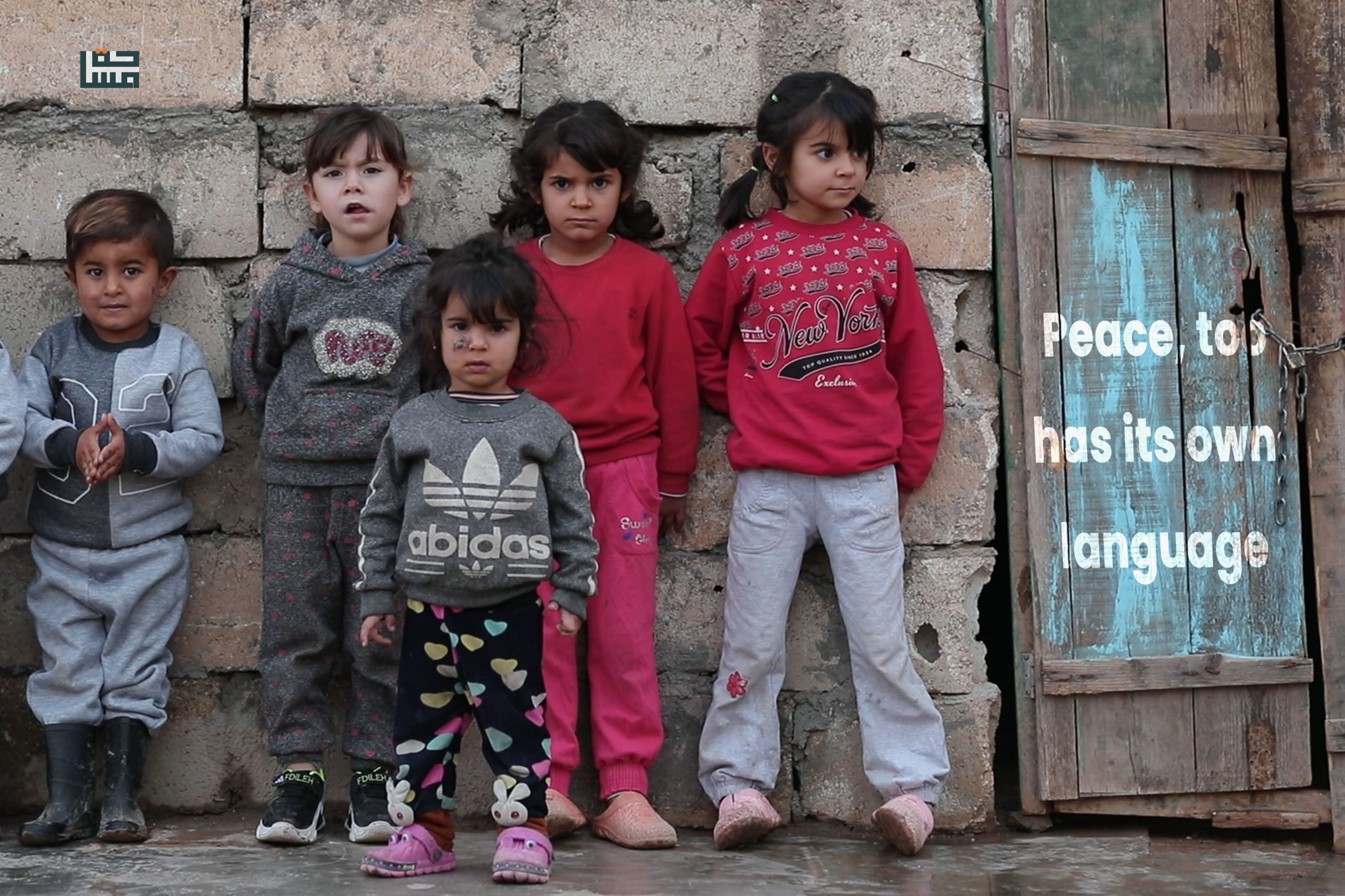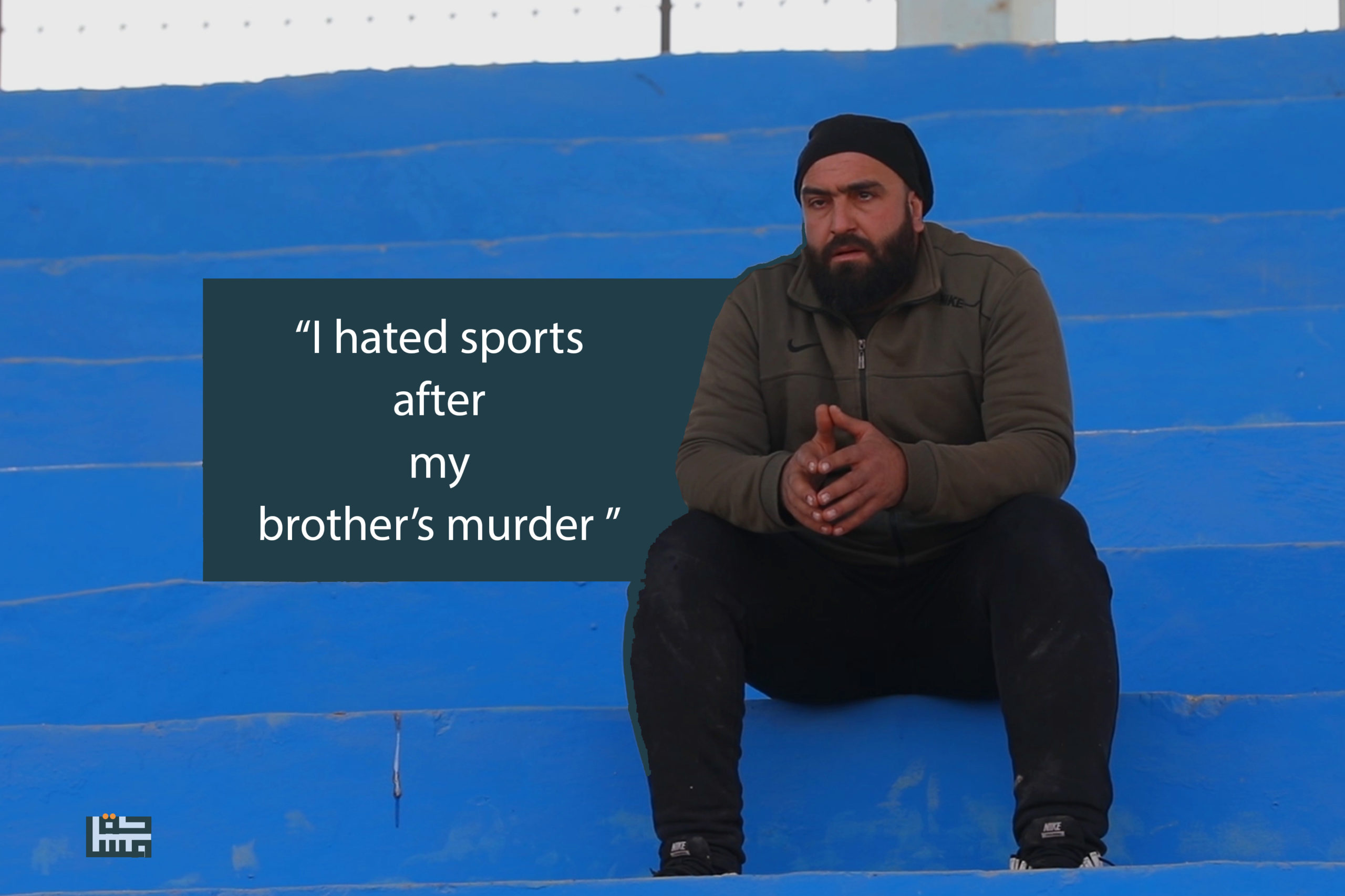“I wish I could cry so I could rest”
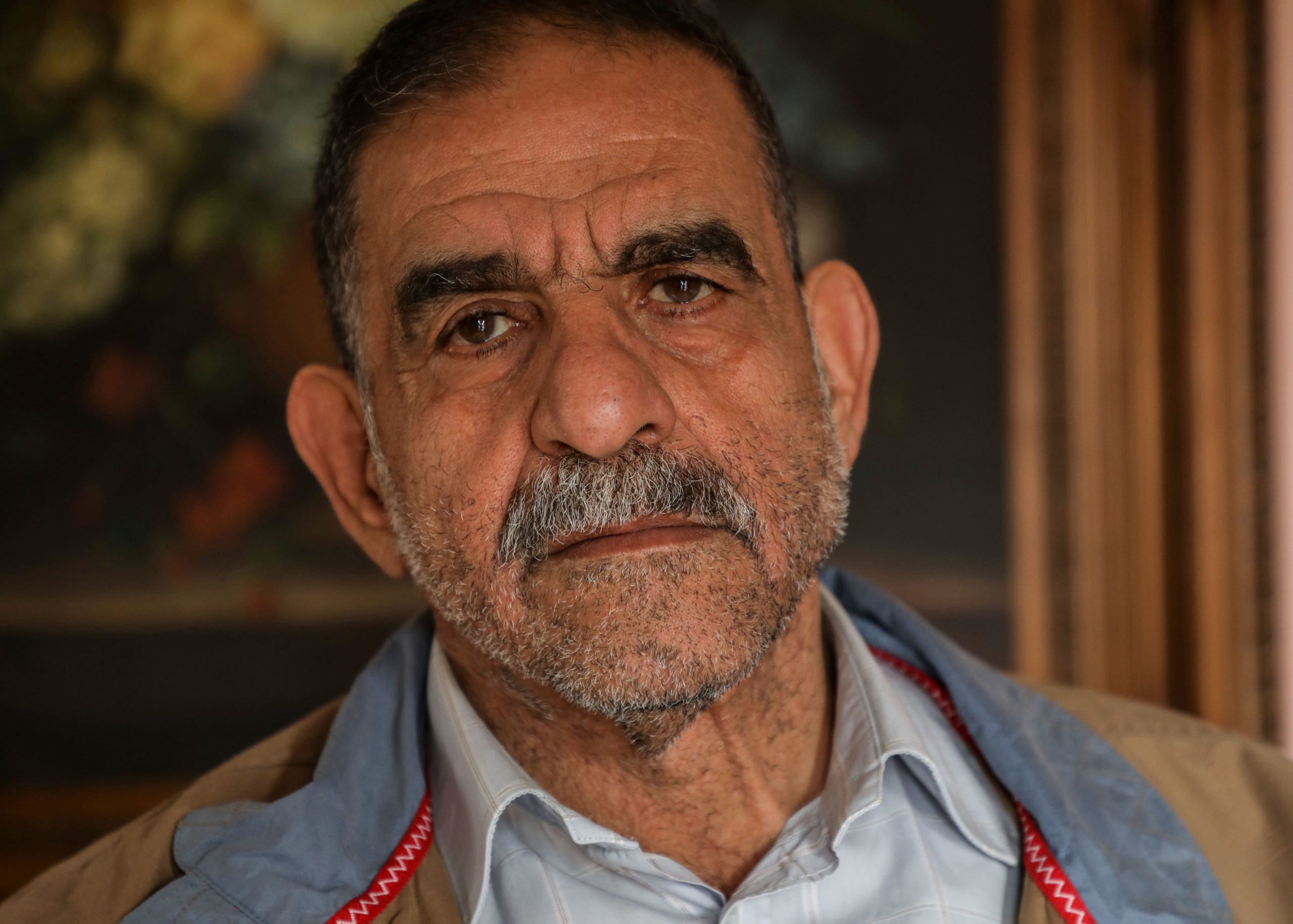
“I wish I could cry so I could rest”
He comes out of his house and wanders the streets of Raqqa, a city that has just recovered itself from the war. He looks for his son Issa and remembers him among the alleys of the city and its ruins. “Wake up, my son, the [Islamic] State is calling you.” This was the last sentence of 64-year-old Khalaf Al-Ghazi to his son, Issa, when he was kidnapped by ISIS, at the age of 17. Pain and hope have been his companions since then.
From a student to a prisoner
Issa was working in the field of relief when the Syrian government forces left Raqqa and armed factions took control. His father, Khalaf, says that his son was not affiliated with any armed group, and he was only working in the field of civil society. When Jabhat al-Nusra, and then ISIS controlled Raqqa city, Issa left his work in the relief sector and devoted himself to studying for the baccalaureate – civil work was forbidden and exposed those who work in it to great dangers. Before he was kidnapped by ISIS, he had intended to go to the city of Qamishli to partake in the exams, but he did not know that a dark fate was awaiting him.
Tuesday, April 10, 2014, was a fateful day that occurred to Issa and his family. At 6:30 in the morning, the door was knocked by four masked men. The father opens the door. “What do you want?” he asks. “We’ll take your son to answer a few questions and then we will bring him back to you,” they replied. Khalaf woke up his son, saying: “Wake up, Issa, the [Islamic] State wants you.” They took him in a white vehicle to Point 11 (a prison and a security headquarters for ISIS in Raqqa). After 4 hours had passed and Issa had not returned home, Khalaf told his relatives what had happened and that he had to be found.
The father began the journey to search for his son, but to no avail. All the paths were blocked before him. So, the father decided to go to the emirs of ISIS in the city; and they were showing some kind of pretend sympathy in front of him. One of the emirs promised Khalaf that he would return his son on Friday, but this, too, was not helpful.
Mediator killed
One morning, Khalaf received a message from an ISIS member regarding his son, in which it was written, “Your son is in good condition and will soon be released.” Meanwhile, the father went to Point 11, and met the [ISIS] judge at the headquarters; a man of Egyptian origin, and he too only pretended to offer sympathy without saying anything else to him.
Two weeks later, the father received another message from the same person, bearing the words of his son Issa who was very worried. It was time for exams, and he had not received any reassuring answer in the prison. The father was shocked by the death of the messenger, one day after receiving the last message. ISIS had learned that this person was carrying the messages to the families of the detainees.
Issa kept in the “Father Paolo” group
Khalaf learned that Issa was transferred to the governorate prison, which is a large prison for ISIS in Raqqa city center; this was after Point 11 was bombed by planes.
A year had passed since Issa’s arrest, and Khalaf was still searching for his son. Khalaf says: “I met an ISIS emir of Jordanian origin, who was a doctor and worked in security within ISIS. He told me that Issa was kept in a very secret prison and only a few ISIS emirs were aware of that. He was detained with a group called ‘Father Paolo’s group’. This group included 43 young men, all of whom were civil activists.”
Now three years had passed since the arrest of Issa. ISIS is in a weak position in Raqqa, as it is constantly being bombarded from air.
Khalaf went to Abu Anas al-Iraqi, one of the emirs of ISIS and one of the founders of the security apparatus in Raqqa. He was residing in Khalaf’s farm after he forcibly seized it. However, he reassured Khalaf and told him that “Issa was fine.” On three occasions, Khalaf was issued an arrest warrant on the pretext of his hatred of ISIS, as Abu Anas Al-Iraqi accused him of secularism, a major accusation that exposed the accused to death; (secularism is a type of shirk according to ISIS).
One week after their meeting, Abu Anas al-Iraqi told Khalaf that his son, Issa, was in Mosul, that “he was a precious treasure and was good at working on computers”, and that the “brothers [ISIS]” would not neglect him.
Khalaf loses hope of finding his son
After the fall of ISIS in Deir ez-Zor’s Al-Baghouz, Khalaf lost hope, yet he resorted to another way to search for his son; and that was to found an association, including the families of the kidnapped, to search for all the missing persons. Khalaf is still holding periodic meetings with the families of the kidnapped, accompanied by a group of civil activists in Raqqa, to find out their fate or reach a clue that leads them to some information.
Khalaf says that Father Paolo stayed at his house for three days, after which he was kidnapped by ISIS. Since then, ISIS was arresting the activists and jailing them within the group of Father Paolo. No one among that group has been found until now; their fate remains unknown.
Issa’s memories
Khalaf did not leave Raqqa during the war. He was a witness to the bombing and the battles that took place in the city. He kept waiting for his son to return. Bearing the risks of constant battles and bombing, “I did not want my son to come home and find no one when he knocked on the door.”
Khalaf says: “Issa is like a candle for our house, he is the younger brother of three sisters. He was shy and was always smiling. When ISIS kidnapped him, I looked at the sky and said: “Oh my Lord, I entrust Issa to you, protect him from those monsters. If Issa is in danger, I will give him the rest of my life, just so that he can return safely, so that our family can be together. I hope to see him and hug him, and if I died after that, I will not have regrets.”
“Issa for me is a matter of a homeland cause, my tears have dried up in my eyes. I only cried once when I saw Issa in my dream crying out of pain, shouting ‘Mama, Mama,’”
“We lived dark days under ISIS rule. I saw how ISIS beheaded a young man in his twenties before his father’s eyes, and they told him to take the son and bury him.”
“It’s been 7 years and 8 months, and I haven not cried yet. I wish I could cry so I could rest,” Khalaf concludes the conversation.
